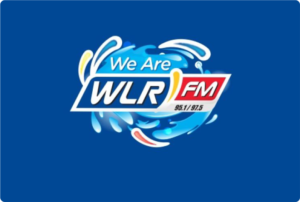
Did you know?
In Ireland we waste about 800,000 tonnes of food each year, according to current best estimates. Growing, processing and transporting food uses a huge amount of resources, such as land, water, energy and fertiliser. If food is wasted, these resources are wasted too.
For information and tips to help you reduce household food waste, visit the EPA’s Stop Food Waste website.
Globally, more than 25% of food produced is wasted. Food waste is also a significant contributor to climate change. It is estimated that food waste generates about 8% to 10% of global greenhouse gas emissions. Reducing food waste is therefore an effective climate action.
Preventing food waste should be prioritised, and any unavoidable food waste should be treated in the most resource efficient way possible. Diverting food waste from landfill has environmental and financial benefits, and the benefits of preventing food waste are even greater.
Food waste and climate change
diagram of the hierarchy of food waste
Food waste is a significant contributor to climate change.
In Ireland, we generate nearly 800,000 tonnes of food waste every year. It is estimated that food waste generates about 8% to 10% of global greenhouse gas emissions.
The Government’s Climate Action Plan and Waste Action Plan for a Circular Economy include food waste as a priority waste stream and articulate a 50% reduction, reflecting the EU Circular Economy Package and the UN Sustainable Development Goal 12.3 which states:
“By 2030, halve per capita global food waste at the retail and consumer levels and reduce food losses along production and supply chains”.
Food waste hierarchy
In line with the food waste hierarchy, the best option is to prevent food waste; and then ensure any food waste that arises is treated in the most resource efficient way possible.
Food waste prevention programme
The EPA’s food waste prevention programme is implemented through the Circular Economy Progamme.
The programme delivers campaigns and supports targeting food waste in households, across the supply chain and in the hospitality sector, with a view to achieving the national target for a 50% reduction in food waste by 2030.
Household food waste: awareness raising activities through stopfoodwaste.ie and application of behavioural insights to achieve widespread public awareness of environmental and social issues around wasted food; leading to a significant increase in the number of people taking action on the issue.
Supply chain and hospitality: activities to drive change across the Retail, Distribution, Processing and Manufacturing sub-sector, and reducing food waste in the Hospitality and Food Service sectors. Initial actions are focused on roll-out of a standardised measurement methodology and developing tools and resources for upskilling for action on food waste prevention.
Data and evidence: Behavioural insight is a foundation of the programme, providing evidence and data to inform policy, behavioural change interventions and awareness campaigns, establish sectoral benchmarks and indicators, and to monitor progress. These insights include:
baseline information studies
national surveys on behaviours and attitudes
analysis of waste characterisations and national waste data.
Robust and meaningful data on food waste is central to building a compelling narrative on the benefits of preventing food waste and to complying with national legislative reporting requirements.
Forum on Food Waste: The EPA hosts the national forum on food waste bringing together business and policy leaders from across the food supply chain. View the presentations and videos from the latest Forum that took place on 4 November 2021.
How much food do we waste?
The EPA produces national waste statistics and therefore has responsibility for producing the relevant statistics under the Waste Framework Directive. The EPA also funds research and studies to develop finer scale understanding and address data gaps in this area.


